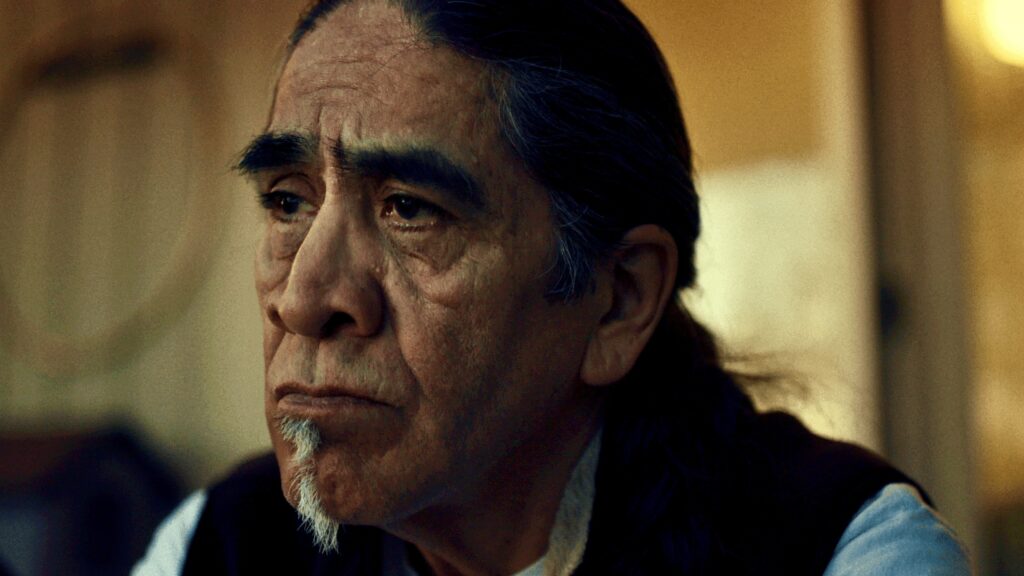
(****)
It’s a day of reckoning. A time to hold people accountable.
Graves are found around St. Josephs Mission, a residential school once run by priests from the Catholic Church. The facility in Williams Lake, in British Columbia, Canada, gave room, board and an education to Native American children from the nearby Sugarcane Reservation. It gave as much as it took. What happened?
Finding out what went on between those walls before the institution closed in 1981 propels this investigative documentary forward as co-directors Emily Kassie and Julian Brave Noisecat dig deep. Noisecat has a special interest, as his dad went to St. Joseph’s. They won’t like the answers they find, things they hear, nightmares they uncover. However, in the process, the two astute filmmakers’ mission has many positive results.
Interviews with ex-students, who are elders now, detail emotional, physical and sexual abuse far beyond anyone’s imagination. Chief Willie Sellars, Charlene Belleau and Ed Archie Noisecat search their memories for the truth. It doesn’t take much, because every day they relive the horrors of what they experienced decades ago. Screams in the night. Babies tossed in trash cans. Memories they can’t erase even with alcohol, though they try over and over.
As kids they were brainwashed into accepting white American Culture, and not their own. Belleau: “When you’re brought up in an institution like the Catholic Church you have strict rules. You went with their ethics … everything was so secretive, you know. And here they were, the ones that did all the action.”
As the directors and their prying camera (Kassie and director of photography Christopher LaMarca) interview more people and further document the ghastly experiences of venerable children, shock turns into sadness and sadness into outrage. The crimes against them become more revolting, graphic and unforgivable. The pain, terror and monstrous acts go way back to the ’40s. Girls impregnated by priests, students committing suicide and beatings.
It’s a lot for an audience to bear, but a sense of mending is underway as survivors lift burdens they’ve carried in secret for decades. The last chapter of this profound recounting is a pilgrimage to the institution that governed the perpetrators. Says one incensed survivor: “You’re going to be accountable and we’re going to start now.”
Horror, blame and anger turn into a cleansing that is extraordinary. All of it captured on film, edited to perfection (Nathan Punwar) and in a doc that provides solace for survivors, a voice for dead victims and a chance for healing.
That’s what happens in Sugarcane. People in need bear witness to a nightmare that’s haunted them for an eternity. Now they claim their past, with a certain dignity. Says one not afraid to speak out: “My mother was abused by a priest, and that’s how I was born.”
This the real deal. A reckoning. America’s Indigenous people exposing crimes against them, testifying and controlling the narrative. Unlike Killers of the Flower Moon.
This is documentary filmmaking at its best. A credit to the genre. Compelling, spiritual and enlightening.
Photos courtesy of the Sundance Film Festival.
For more information about the Sundance Film Festival go to: https://festival.sundance.org
Visit Film Critic Dwight Brown at DwightBrownInk.com.